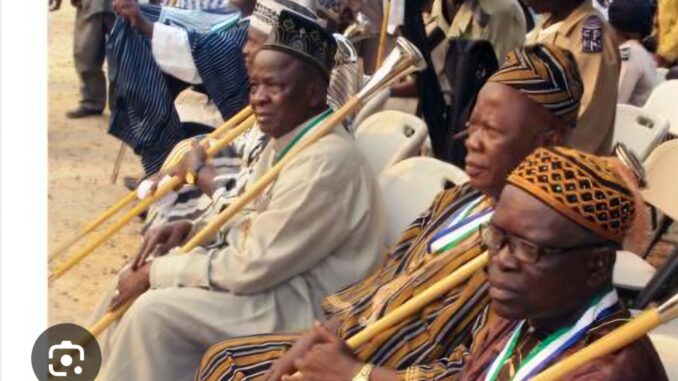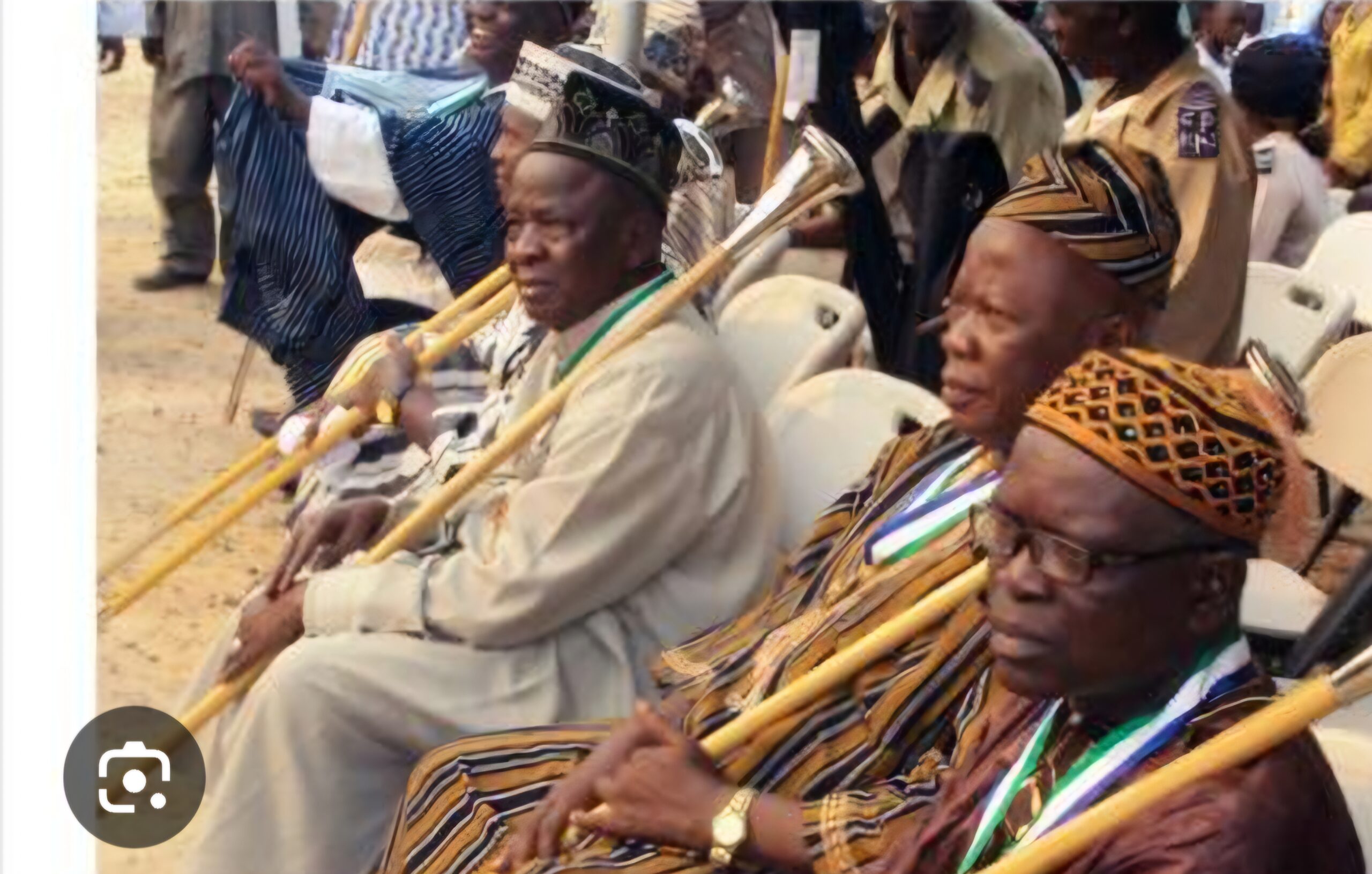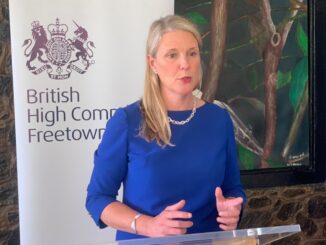
CENTRAL COLONIALISM IN SIERRA LEONE: THE SUBJUGATION OF TRADITIONAL LEADERSHIP.
BY PENDRAGON 🐉 👑 the political JAGABAN 🐉 👑:
04/02/2025.
Contact CAMB on 074567582 for any suggestions or information.
In Sierra Leone, the intersection of traditional chieftaincy and modern governance has been marked by a complex power struggle that some scholars and local commentators have described as “central colonialism.” This phenomenon involves the overreach of the central government into the affairs of paramount chiefs, undermining their authority and transforming them into mere political sycophants.
Today, paramount chief elections are often heavily influenced and manipulated by the central government, leading to the dominance of those who are most closely aligned with government officials rather than those truly supported by their communities.
THE RISE OF CENTRAL COLONIALISM
At the heart of this issue lies the relationship between the central government and the traditional leadership structure. In many chiefdoms, paramount chiefs are meant to be figures of authority who represent the will of the people and preserve local customs. However, over the years, the central government has gradually undermined this traditional system. The involvement of the central government in paramount chief elections has become so pervasive that these elections are no longer seen as a true reflection of the people’s choices. Instead, they are increasingly viewed as a political contest where the highest bidder and those with the most significant government connections stand the best chance of winning.
Many paramount chief aspirants now use their ties to the central government as the cornerstone of their campaigns. They highlight their membership in the ruling party, presenting themselves as “loyal” to the current leadership of PAOPA Bio government in order to gain the favor of government officials, especially resident ministers. This political maneuvering has become so entrenched that candidates are frequently heard proclaiming that leadership is already “in their pockets,” as if the central government’s blessing is the key to their success. As a result, the once independent and respected position of paramount chief has been reduced to little more than a political tool, serving the interests of the central government rather than the people.
THE CENTRAL GOVERNMENT’S INFLUENCE
The level of interference by the central government in paramount chief elections goes far beyond mere support for one candidate over another. In some cases, the government will go so far as to outright control the outcome of the election, using tactics such as bribery, coercion, and the threat of withdrawing recognition from chiefs who do not toe the government line. As a result, local councils, once bastions of local autonomy and traditional governance, have become mere extensions of the government’s political machinery.
This centralization of power under the Sierra Leone People’s Party (SLPP) government of President Julius Maada Bio has been particularly evident in the manipulation of petitions and by-elections. Candidates with connections to the central government often benefit from favorable decisions in these cases, further entrenching the government’s grip on local leadership. The manipulation of the paramount chief elections and local councils exacerbates political tensions, fueling resentment and dissatisfaction among local populations.
THE CONSEQUENCES FOR CHIEFDOMS
The consequences of this central colonialism are severe for the social fabric of Sierra Leone. The increasing politicization of traditional leadership has led to deep divisions within chiefdoms, undermining the unity that was once the hallmark of these communities. The use of state power to influence elections has led to discontent, fueling conflicts between families and groups within the chiefdoms. The imposition of government-approved leaders has also exacerbated land disputes, as the chosen paramount chiefs often prioritize political loyalty over the welfare of their people.
THE LEGACY OF BAI BUREH AND TRADITIONAL LEADERS
The autocratic tendencies of the central government in Sierra Leone are not new. Leaders like Bai Bureh, a legendary warrior and traditional leader from the late 19th century, famously fought against colonial rule, defending the autonomy of his people and their traditional systems of governance. Bai Bureh’s resistance to central authority symbolized the broader struggle for independence and the preservation of indigenous cultures and political structures. His cries against autocracy resonate today, as the current central government under President Bio seems to follow a similar pattern of subjugating traditional leaders to achieve political dominance.
THE NEED TO PRESERVE TRADITIONAL LEADERSHIP
The central government’s interference in traditional leadership has far-reaching implications for Sierra Leone’s culture and identity. Traditional leadership, which has existed for centuries, must remain a non-political institution to preserve the unique cultures and practices that define Sierra Leone’s diverse communities. Politicizing traditional leadership undermines the very foundations of Sierra Leone’s identity, diminishing the cultural values that have shaped its society for generations.
A man who does not respect his culture and traditions is at risk of losing his identity to outside influences. As foreign powers and ideas increasingly shape the country’s governance, it is crucial for Sierra Leoneans to protect their indigenous systems of leadership. Allowing traditional leaders to operate free from political interference is essential for maintaining the cultural richness that defines the nation.
Conclusion
The rise of central colonialism in Sierra Leone is a direct threat to the integrity of the nation’s traditional leadership structures. The politicization of paramount chief elections and local councils has led to widespread dissatisfaction and division among local populations, undermining the unity and stability that once characterized chiefdoms. To preserve Sierra Leone’s rich cultural heritage and ensure that local communities have a genuine voice in their governance, it is imperative that traditional leadership remains free from political manipulation. If this trend continues unchecked, Sierra Leone risks losing the very traditions and values that have defined its identity for centuries.
#The blood of Tonkolili district is running through my vains.
#Am still Da Indelible Ink 🔏 PEN they better know Dis.





Leave a Reply